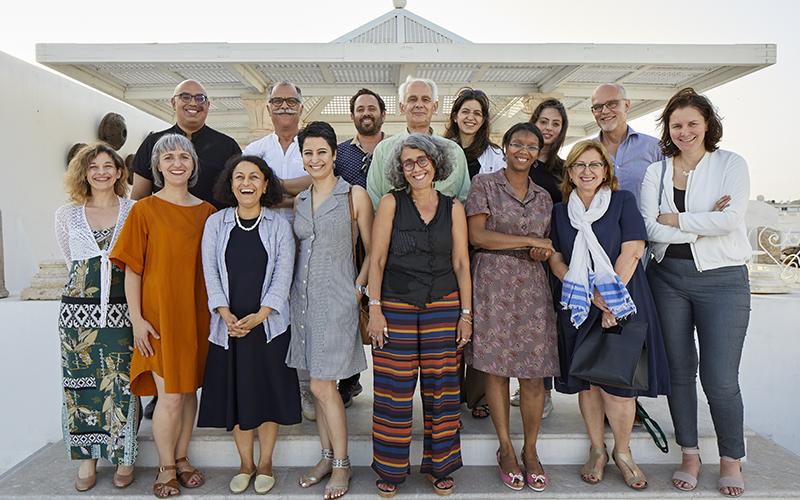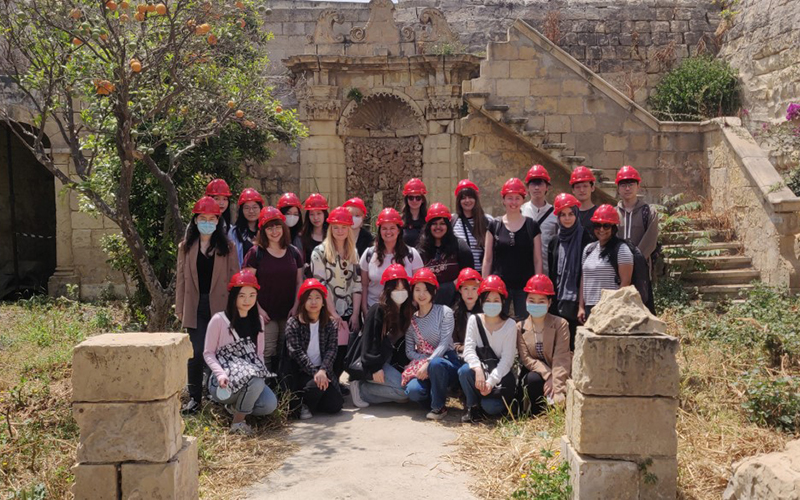Heritage management
Heritage Management is a growing interdisciplinary field. The field of heritage management critically uses, integrates and adapts theories and methods drawn from arts and humanities, social, physical and natural sciences in order to evaluate and inform the management processes related to heritage such as documentation, value assessment, protection, access, interpretation, maintenance and sustainable development. UCL Institute for Sustainable Heritage is pioneering participatory approaches to heritage management enhancing the contribution of heritage to socio-economic, cultural and environmental sustainable development and well-being. Our current research in heritage management employs novel socio-technical methods and approaches enabled by synergies with heritage science and heritage policy.
Research areas
Our heritage management research runs across several areas including: heritage values, heritage dynamics, participatory heritage, transformative heritage, energy efficiency and heritage, heritage risk and resilience. Discover the breadth of research we have in these areas:
Heritage values

- Our research
- The ‘Collections Demography’ research project was one of the first to bring together value assessment processes with modelling of degradation.
- The Deep Cities (Curating Urban Transformation through Heritage) research project deploys participatory methods in understanding the complex and dynamic values attached by diverse communities in dynamically evolving urban areas.
- Patra Rungsiroj, PhD Researcher at UCL Institute for Sustainable Heritage, has developed a novel mixed method for capturing the unspoken and hidden heritage values of local communities using the example of Chiang Mai in Thailand.
- Diana Rahman, PhD Researcher at UCL Institute for Sustainable Heritage, has deployed ethnographic research in unpacking the complex values attached by local farmers in the case of the cultural landscape of Bali Province inscribed to the World Heritage List.
Heritage dynamics

- Our research
- The forthcoming book ‘Heritage Dynamics’ by Kalliopi Fouseki showcases the dynamic complexity of various forms of heritage practices including ‘tangible’ and ‘intangible’ heritage.
- The ‘Deep Cities’ project draws on dynamic modelling methods in order to establish the ways in which participatory urban heritage contributes to sustainable urban futures. The project is based on initial experimental research including Fouseki, K. and Nicolau, M., 2018. Urban heritage dynamics in ‘heritage-led regeneration’: Towards a sustainable lifestyles approach. The Historic Environment: Policy & Practice, 9(3-4), pp.229-248 and Fouseki, K., Guttormsen, T.S. and Swensen, G. eds., 2019. Heritage and sustainable urban transformations: Deep cities. Routledge.
- The complex and dynamic interconnections between the materiality of heritage, values and behaviours and perceptions of users of heritage has been explored in greater depth in Fouseki, K., Newton, D., Murillo Camacho, K.S., Nandi, S. and Koukou, T., 2020. Energy efficiency, thermal comfort, and heritage conservation in residential historic buildings as dynamic and systemic socio-cultural practices. Atmosphere, 11(6), p.604.
- Merve Karabayeser, PhD Researcher at UCL Institute for Sustainable Heritage, is continuing this research in the context of Ottoman architecture
- Krisangella Sofía Murillo Camacho, PhD Researcher at our SEAHA Centre for Doctoral Training, is also continuing this with their research on User-driven Energy Efficiency in Heritage Buildings in Mexico.
Participatory heritage

This research area looks at participatory, inclusive and bottom-up approaches to heritage management (including public engagement, crowd sourcing and citizen science) and social justice. It examines both the process of participation and its impacts on those participating in the process.
- Our research
At UCL Institute for Sustainable Heritage number of PhD projects have examined the complexity of participation as a process and its reciprocal impacts on heritage institutions, heritage professionals and ‘communities’ using interdisciplinary methods that draw on various disciplines such as behavioural economics, sociology, environmental psychology to name just a few. These include:
- Elia Quinano’s PhD research is looking at the social impacts of participatory heritage conservation in Yucatan, Mexico. Elia has developed a novel and sophisticated framework of indicators for evaluating the impacts of participatory heritage conservation (See Quiñones, E.Q. and Fouseki, K., Heritage conservation as a social process: Assessing social impacts of participatory cultural heritage conservation. In Routledge Handbook of Sustainable Heritage (pp. 138-153). Routledge).
- Eirini’s Gallou’s PhD research has focused on the exploration of the reciprocal impacts of participatory heritage on the participants and the heritage itself (including heritage institutions as well as the heritage sites). Her work focused on Orkney islands where a diverse array of participatory projects took place (See, for instance, Gallou, Eirini, and Kalliopi Fouseki. "Applying social impact assessment (SIA) principles in assessing contribution of cultural heritage to social sustainability in rural landscapes." Journal of Cultural Heritage Management and Sustainable Development (2019).
- Mina Dragouni’s PhD research drew on behaviour economics in order to develop a novel participatory model for unpacking the willingness of communities to participate as well as the type of participation they aspire. Her study focused on the area of Kastoria, northern Greece, an area rich in cultural and natural heritage (Dragouni, M. and Fouseki, K., 2018. Drivers of community participation in heritage tourism planning: An empirical investigation. Journal of Heritage Tourism, 13(3), pp.237-256).
We also have had research projects in the area of participatory heritage including:
- The 'Counter mapping diaspora and queer communities’ living heritage in Sheffield' project funded through the Critical Heritage Studies Centre illuminates the powerful role of creative practices and arts in inclusive participation. Issues of inclusion and diversity are also tackled by the “Critical Heritage Studies and Social Justice” also funded by the Critical Heritage Studies Centre.
Transformative heritage

This research area focuses on heritage-led urban and rural sustainable transformations and the contribution of heritage to the sustainable development goals (with emphasis on international development).
- Our research
- The Deep Cities project (Curating Urban Transformations Through Heritage) is one of the most recent projects exploring the complex and dynamic process of urban transformation through heritage and its impact on social sustainable development.
- The Activating Abandoned Heritage in the Medina of Tunis (ACTIVAH) project also looks at the transformative role of heritage in the adaptive reuse of historic buildings through bottom-up, community-based approaches
- Eight PhD projects have been looking at the transformative process of historic urban landscapes in Thailand (Patra Runngsiroj), Kosovo (Lorika Hisari), Shanghai (Kaixuan Wang), Mexico (Krisangella Murillo Camacho), Turkey (Merve Karabayeser), Egypt (Amr Elhusseiny) and Taipei (Tuchung Liu).
Energy efficiency and heritage

This area looks at energy efficiency, heritage values and thermal comfort in historic urban and rural areas. Particular emphasis is placed on the development of socio-technical methods and approaches to better understand how residents (and users more broadly) make decisions on energy efficiency and heritage values in historic (listed or non-listed projects).
- Our research
- The ENHERIT project aims to address this question on a neighbourhood scale at historic areas in Stockholm, Sweden.
- The complex and dynamic interconnections between the materiality of heritage, values and behaviours and perceptions of users of heritage has been explored in greater depth in Fouseki, K., Newton, D., Murillo Camacho, K.S., Nandi, S. and Koukou, T., 2020. Energy efficiency, thermal comfort, and heritage conservation in residential historic buildings as dynamic and systemic socio-cultural practices. Atmosphere, 11(6), p.604. This international study looks at the dynamic interconnections of heritage values and decision-making on energy efficiency, thermal comfort and heritage conservation in Greece, Mexico, Finland and the UK. This global work is now continued by Merve’s Karabayeser research in the context of Ottoman architecture and Sofia’s Krisangella Murillo Camacho work in Mexico.
- The Holistic low-carbon retrofit of historic buildings: how to assess whole-house retrofit strategies project aims to explore the whole-house retrofit approach by bringing together engineering and social sciences.
Heritage risk and resilience

Heritage risk and resilience investigates mitigation strategies towards risks associated with natural disasters (such as climate change) and war disasters. Our research in this area puts an emphasis on working with disaster effected communities using participatory methods.
- Our research
- A group of researchers at UCL Institute for Sustainable Heritage have endeavoured to propose methods of risk assessment that incorporate heritage values (i.e. Curran, K., Bao, J., Oakley, H., Gili, A. and Fouseki, K., 2022. 3 Combining theory and practice. Routledge Handbook of Sustainable Heritage, p.44).
- A particular emphasis has been placed on decolonizing climate change-heritage research
- We also work on participatory research that involves communities in recovering from natural disasters, for example Twigg, J., Lovell, E., Schofield, H., Miranda Morel, L., Flinn, B., Sargeant, S., . . . D'Ayala, D. (2017). Self-recovery from disasters: an interdisciplinary perspective (ODI Working Paper. Shaping policy for development and Kumar, P. (2020). Crowdsourcing to rescue cultural heritage during disasters: A case study of the 1966 Florence Flood. International Journal of Disaster Risk Reduction, 43, 101371. doi:10.1016/j.ijdrr.2019.101371). London: Overseas Development Institute) or war disasters (e.g. Hisari, L. and Fouseki, K., 2020. Post-war cultural heritage preservation in Kosovo: Rethinking the implementation of ahtisaari plan annex v. Heritage, 3(1), pp.98-115.
Research stories
Recent projects
Heritage Management in teaching
Our heritage management research is embedding in our Sustainable Heritage MSc teaching across all routes. Throughout their taught modules students are introduced to core knowledge and concepts related to heritage management, with many students opting to take on a heritage management challenge in their dissertation research.
Sustainable Hertiage MSc (Heritage Management)
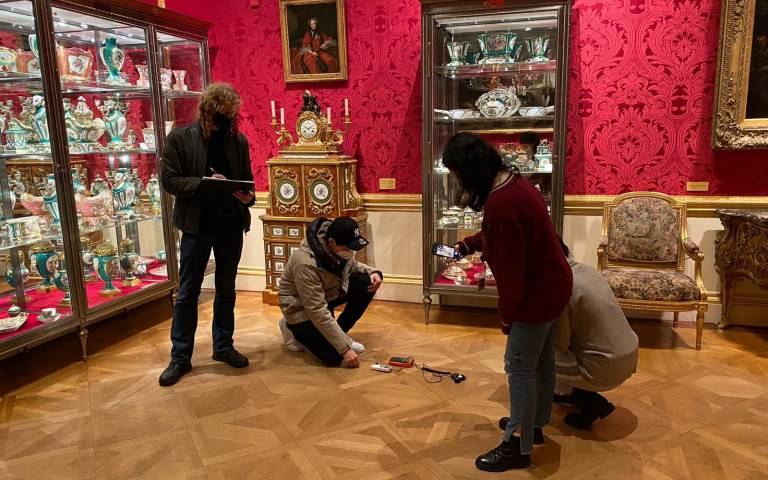
Relevant modules
- Heritage, Values and Sustainability
- Heritage Materials and Assemblies
- Strategies for Sustainable Heritage Landscapes
- Strategies for Sustainable Heritage Buildings
- Heritage Management and Sustainable Development
Past dissertations
In their third term students carry out their dissertation research on a topic of their choice often closely linked to heritage management. Past examples include:
- Conservation heating at the National Trust: Investigating its benefits and mitigating its limitations & sustainability in the context of climate change.
- Reconceptualising intangible heritage: the case of the Mongolian Ger/Yurt
- Heritage and Social Participation: The case study of the Bomb Gap at King's Cross Station.
Sustainable Hertaige MSc (Data Science)
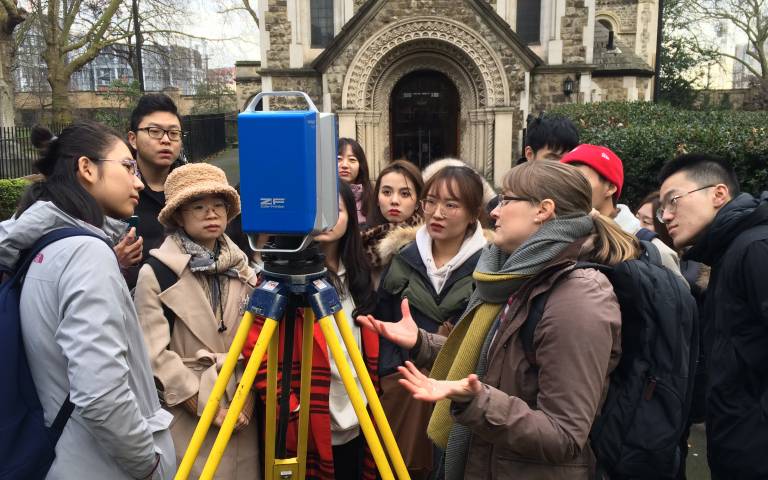
Relevant modules
- Statistics for Heritage Science
- Heritage Data Management
- Machine Learning for Heritage
Past dissertations
Our Master's student's dissertations explore a diverse array of heritage management challenges, including climate change, preventive conservation, applications of imaging technology, and understanding stakeholder perspectives through social media data. Past examples include:
- Creating a Metric to Measure the Impact of Open Access Image Collections in Wikimedia
- Tracking the Development of ‘Ritual Engagement’ with Heritage Sites through Social Media Analytics a Case Study of Gamcheon Culture Village
- Modelling the influence of climate on the performance of environmental control at The National Archives, Kew
Doctoral Research (PhD)
Lorem ipsum dolor sit amet, consectetur adipiscing elit. Sed pulvinar, nulla in pharetra elementum, lectus purus convallis mi, egestas maximus justo ligula vestibulum felis. Nulla egestas ultrices rhoncus. Donec nec commodo lorem. Phasellus non nunc et massa varius pellentesque.
Doctoral research relating to Heritage Management:
- Panos Andrikopoulos - ‘Rethinking the Museum Visitor Experience through Illumination Dynamics’
- Mina Dragouni - ‘Local community participation in sustainable cultural tourism development during periods of socio-economic crisis’
- Joy Edeoja - ‘The social impact of education on heritage perception among young adults'
- Amr Elhusseiny – ‘The boundaries of heritage- the case of Egypt’
- Eirini Gallou - ‘Sustainable heritage management & community participation on island context: investigation of reciprocal links’
- Lorika Hisari - ‘The role of heritage in post-war reconciliation and reconstruction: the case of Kosovo’
- Yixin Jin - ‘Heritage and Sustainable Development in Shanghai’
- Merve Karabayeser - ‘The dynamic interconnections between energy efficiency, heritage and thermal comfort in Ottoman buildings’
- Dimitra Kizlari – ‘Re-branding Greece's national image through culture’
- Tuchung Liu - ‘Urban transformation through heritage in Taipei’
- Krisangella Murillo Camacho - ‘User-driven Energy Efficiency in Heritage Buildings’
- Sascha Olinsson - ‘Sustainable Heritage Management through Social Entrepreneurship’
- Elia Quiano Quinones - ‘Analysing the social impact of participatory heritage conservation on social development: the case of contemporary Maya communities in Yucatán, México’
- Diana Rahman - ‘Change, authenticity and Outstanding Universal Values at Subak Cultural Landscape’
- Patra Rungsiroj - ‘Defining urban heritage dimensions Chiang Mai’
- Colin Seymour - ‘Sustainable business models for museums’
- Maria Shehade - ‘The resolution of cultural property disputes: a way forward’
- Ari Volanakis - ‘Understanding the role of organisational routines as founts of practical knowledge in cultural heritage organisational sustainability. A convergent mixed-methods multiple case-study’
- Kaixuan Wang - ‘Time Perception in Urban Heritage—Based on the Case of Wukang Road’
Researchers
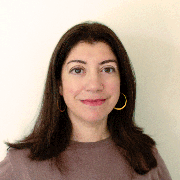
Professor of Sustainable Heritage
View May's profile
Send May an email
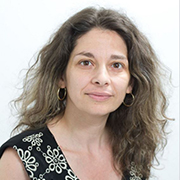
Kalliopi Fouseki
View Kalliopi's profile
Send Kalliopi an email

Katherine Curran
View Katherine's profile
Send Katherine an email
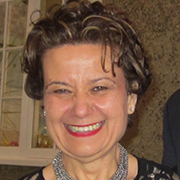
May Cassar
View May's profile
Send May an email

Pakhee Kumar
View Pakhee's profile
Send Pakhee an email

Richard Sandford
View Richard's profile
Send Richard an email

Scott Allan Orr
View Scott's profile
Send Scott an email
 Close
Close


